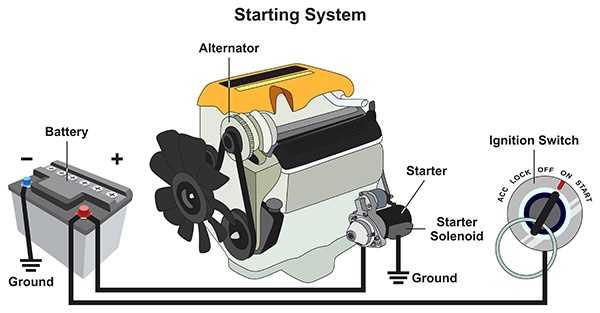
You’re all set to hit the road, but your car refuses to start. Few things are as frustrating, especially if you’re in a rush. While there are countless reasons a car might not start, some are more common than others. Knowing where to begin troubleshooting can save you time, stress, and possibly a trip to the shop. Let’s walk through the most likely culprits and what you can check when your vehicle stubbornly refuses to come to life.
Is the Battery the Issue
When your car doesn’t start, the battery is often the first place to look. After all, it’s responsible for powering up your vehicle’s electrical systems and engine. A dead or weak battery can leave you stranded without warning.
How do you tell if it’s the battery? Look for clues like dim interior lights, unresponsive power locks, or no sound at all when you turn the key. If you hear a clicking noise, it’s another red flag for a drained battery. Jump-starting your car is a quick way to confirm if this is the issue. If it starts after a jump but struggles again later, your battery may be nearing the end of its life.
Could It Be the Alternator
Even with a healthy battery, your car won’t go far without the alternator pulling its weight. This component charges the battery while you drive and powers the car's electrical systems. If the alternator isn’t working, the battery will drain rapidly.
Flickering headlights, a battery warning light on your dashboard, or electrical components that stop working are signs of a failing alternator. If your car starts but then stalls soon after, the alternator could be the culprit.
Is the Starter Motor Acting Up
The starter motor plays a vital role in getting your engine up and running. If it’s malfunctioning, the engine won’t crank, no matter how much juice your battery has. Common signs of starter issues include a single loud click or no sound at all when you turn the key.
Starter problems usually require professional attention, but you can try tapping the starter motor gently with a tool. Sometimes, this temporarily gets things moving, but it’s a stopgap solution at best.
Fuel System Troubles
Even if your battery and starter are working, your car needs fuel to start. If your tank is empty (or nearly so), it’s a simple fix—just fill it up! But what if there’s plenty of gas, and it still won’t start?
A clogged fuel filter can prevent gas from reaching the engine. Similarly, a faulty fuel pump might fail to deliver the fuel needed for ignition. If your car cranks but doesn’t start, listen for a faint humming sound when you turn the key to the "on" position. No sound? The fuel pump might be failing.
Are You Dealing with Ignition System Issues
If all else seems fine, the problem could lie in the ignition system. Faulty spark plugs, a bad ignition coil, or a malfunctioning distributor can all prevent your car from starting. Without proper ignition, your engine won’t combust the fuel-air mixture needed to run.
Inspecting spark plugs or ignition components might not be possible without the right tools, so this one’s often best left to a professional.
Quick Checklist
To recap, here’s a handy list of things to check when your car won’t start:
- Battery: Look for dim lights or clicking noises.
- Alternator: Check for warning lights or electrical failures.
- Starter Motor: Listen for a single click or no sound.
- Fuel System: Verify fuel level and listen for the pump.
- Ignition System: Watch for signs of poor spark or combustion.
What to Do Next
If you’ve gone through the basics and your car still won’t start, it’s time to call in the experts. Trying to troubleshoot beyond these steps without proper tools or expertise could cause more harm than good.
Regular maintenance can prevent many of these issues before they become major problems. Keeping up with battery checks, fuel system inspections, and general servicing ensures your car is always ready to go when you need it.
From battery replacements to starter repairs, Davenport Motor Company is here to help. Trust us to keep your car running at its best—book a service visit now!